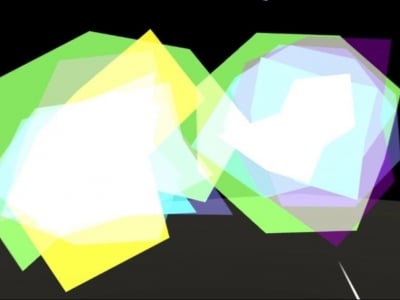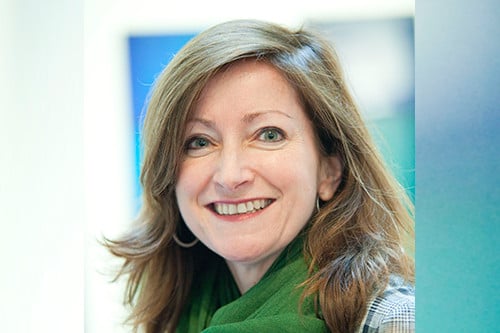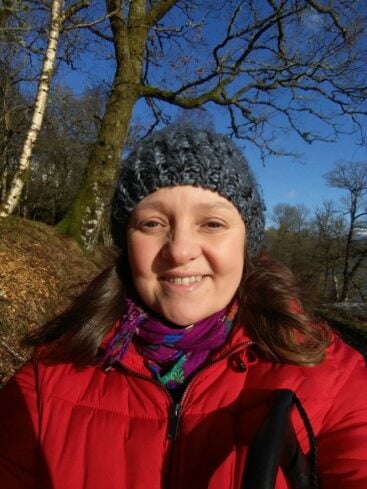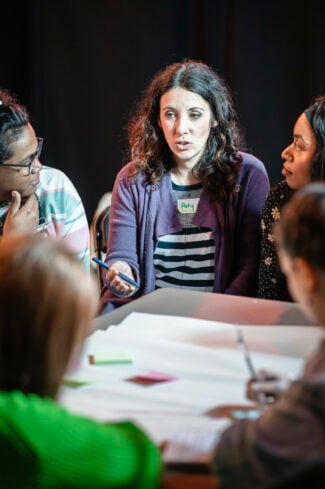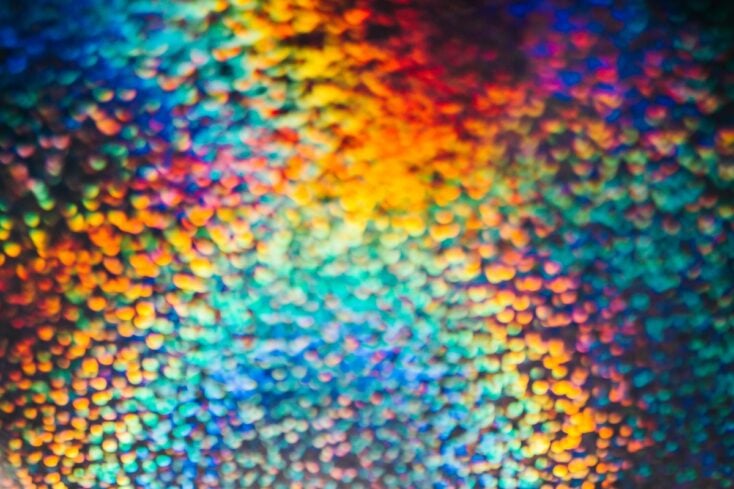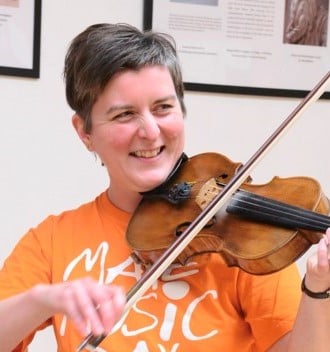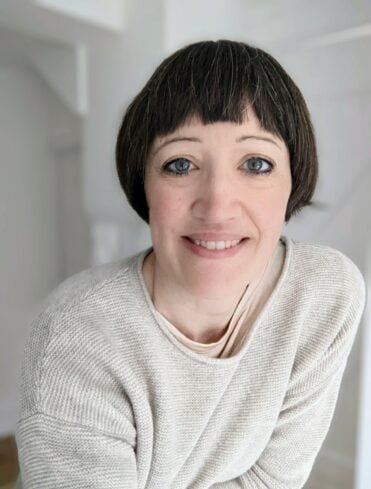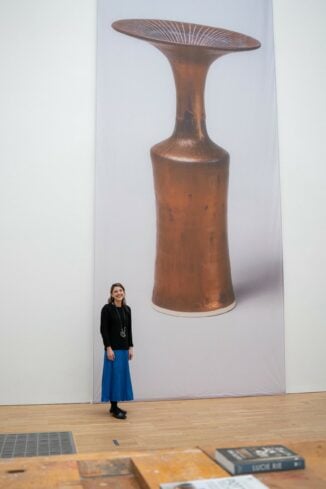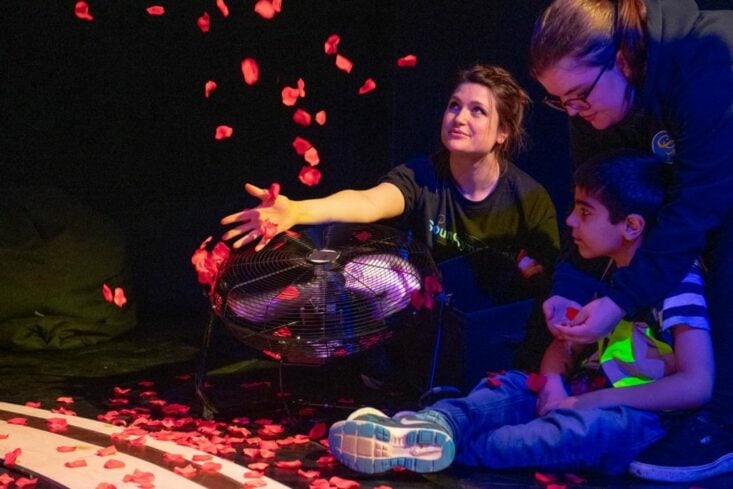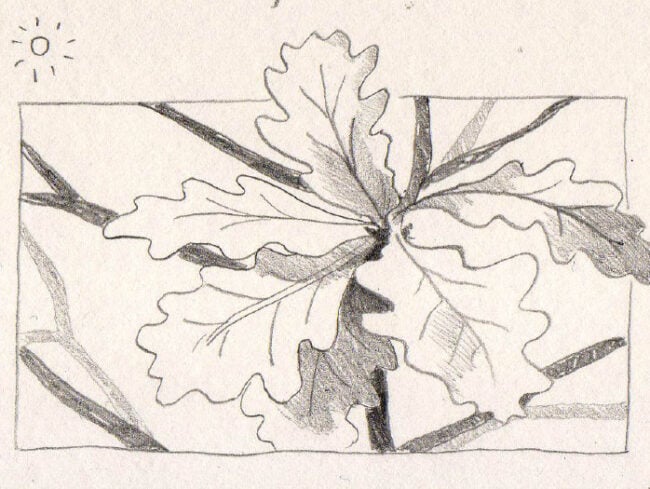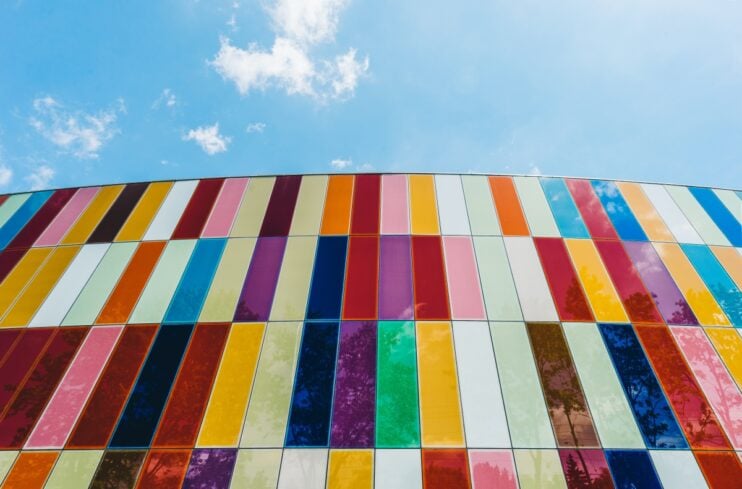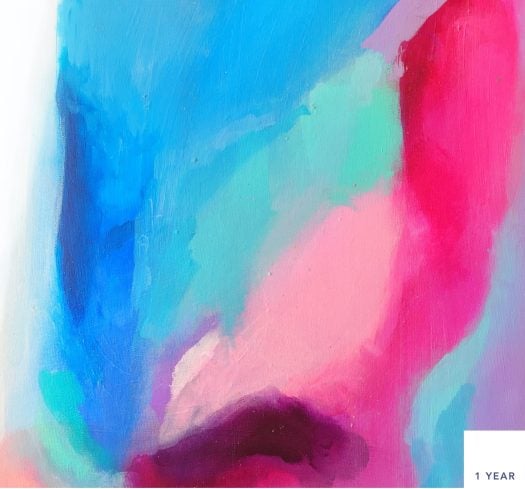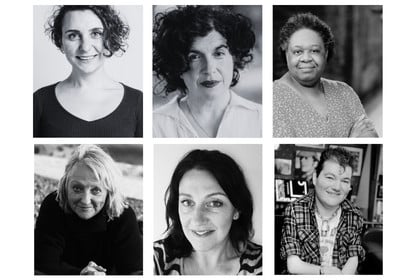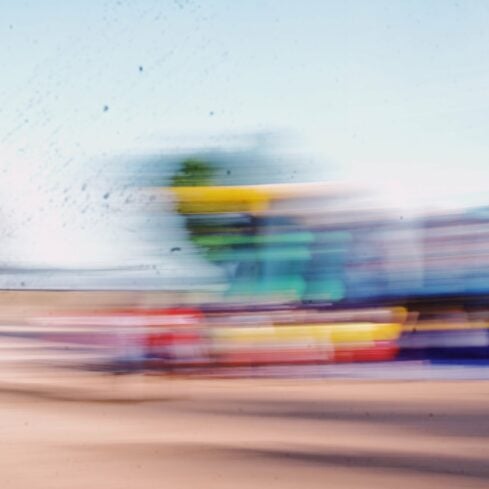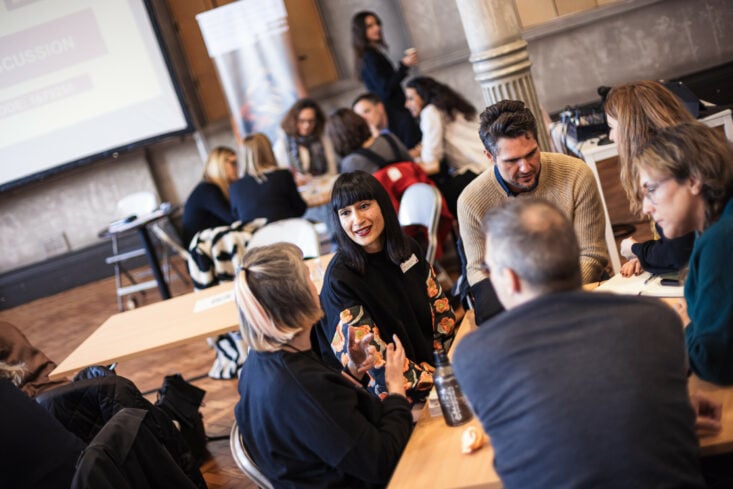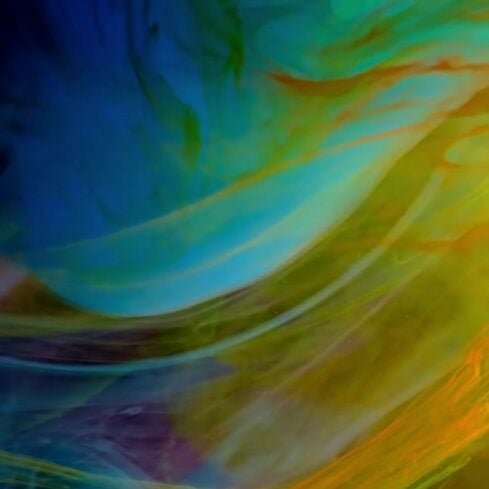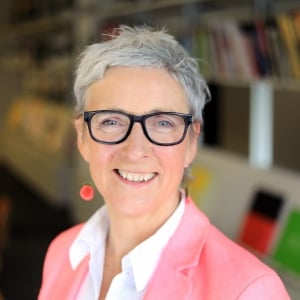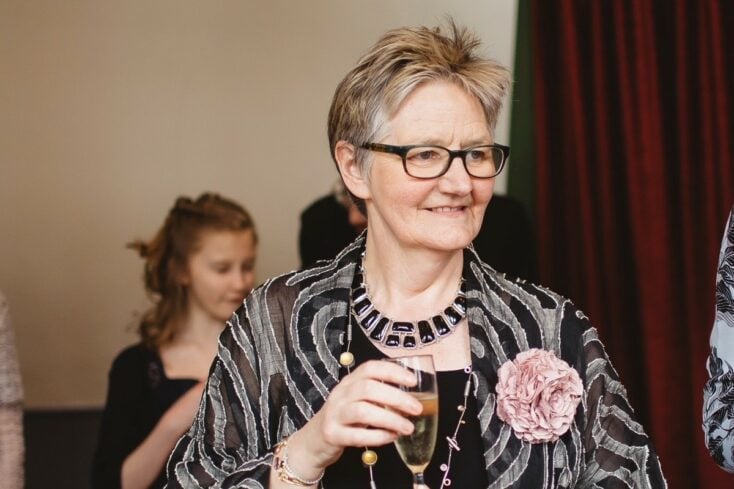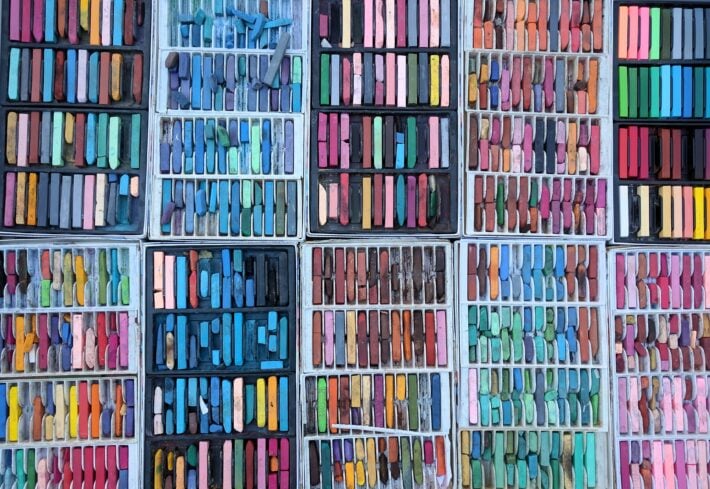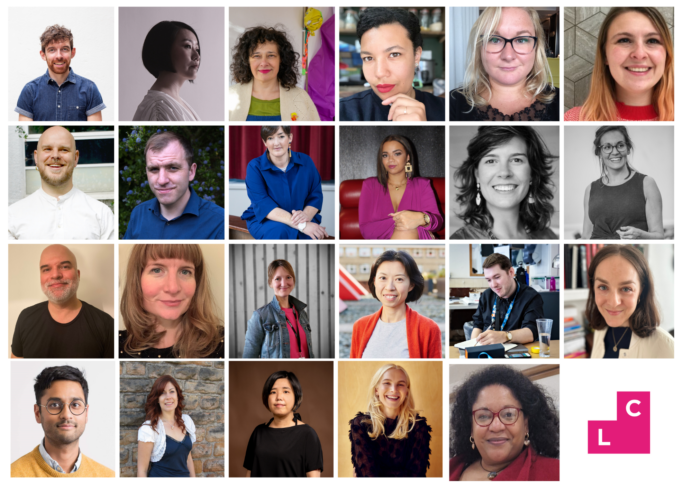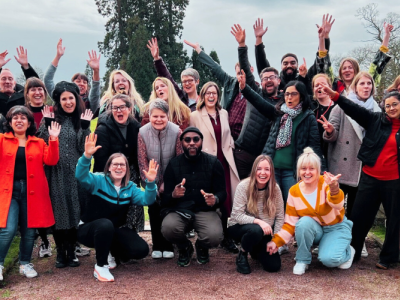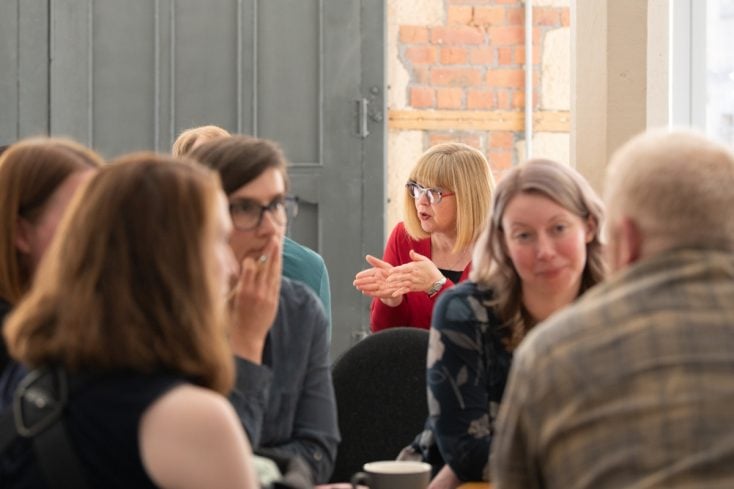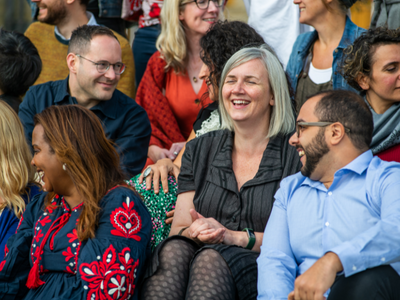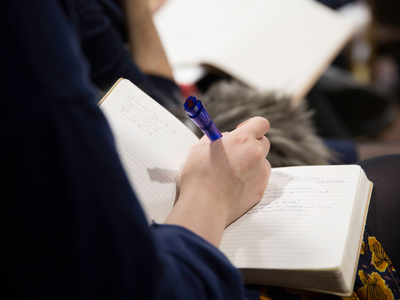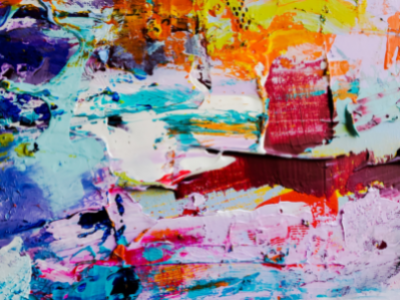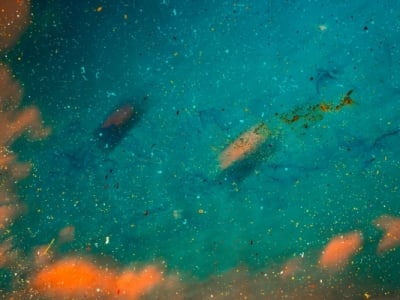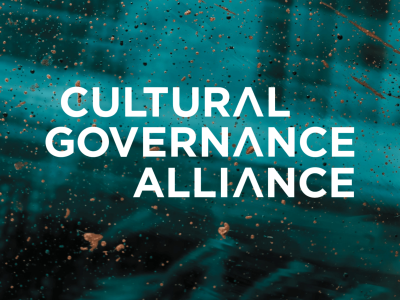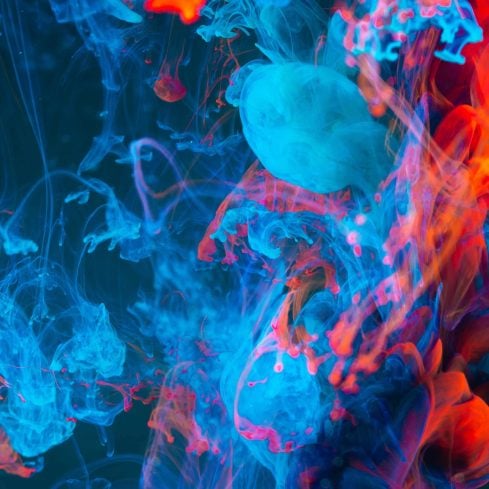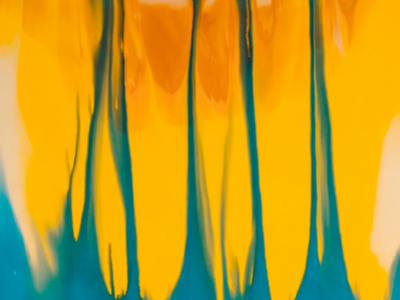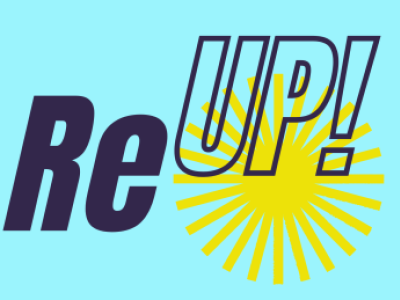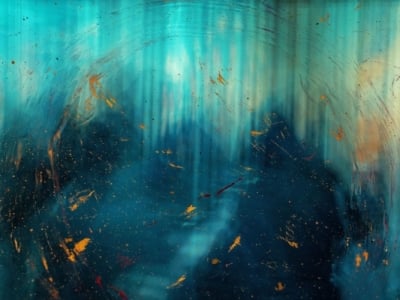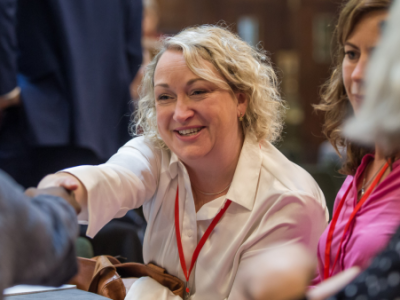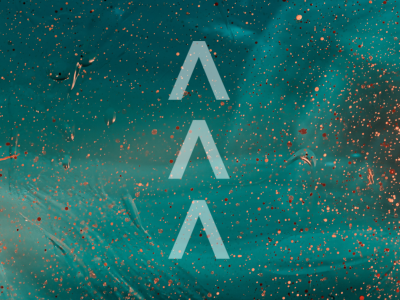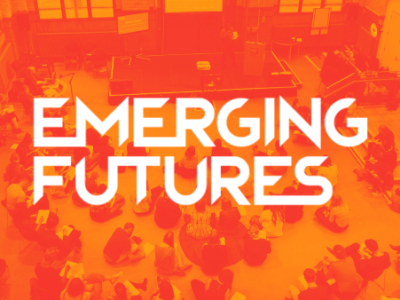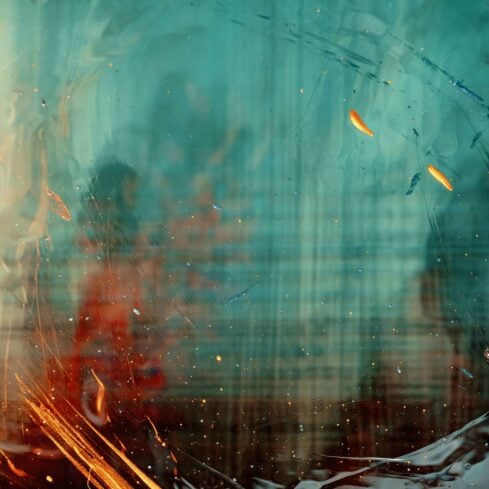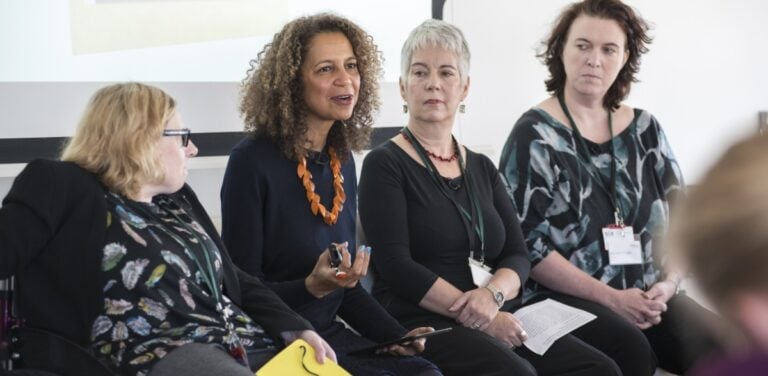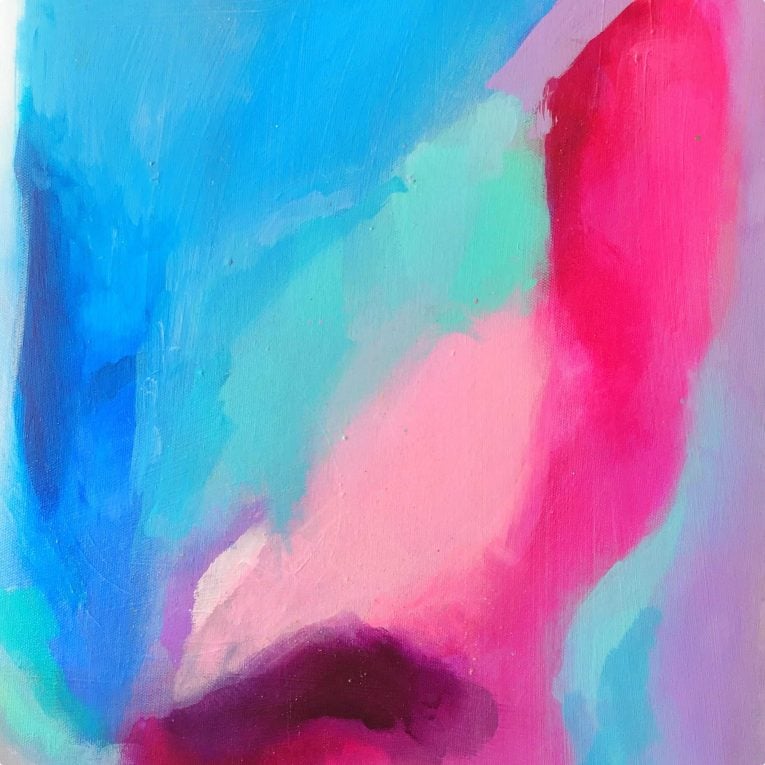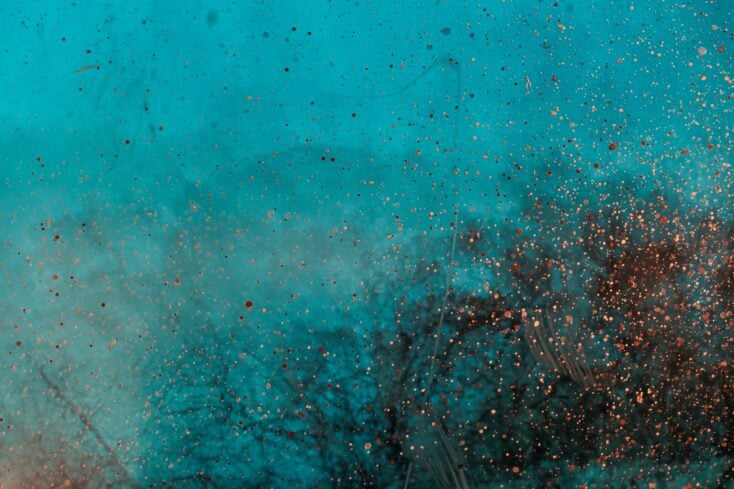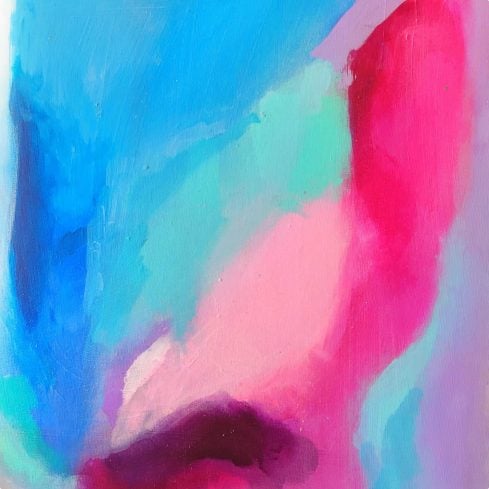A Visual Manifesto for Joyful Inclusivity
Hayley has recently been awarded an emerging artist commission as part of Coventry City of Culture 2021. Here she talks about her Clore Leadership journey and how it gave her the nudge to change direction and to pursue a long-ignored impulse to create.
Huge congratulations on your emerging artist commission by Unlimited – a partner award with Coventry City of Culture. Can you tell us a bit more about your project ‘Portrait of a Brain’?
Thank you – it was a real honour to receive the commission. Portrait of a Brain is going to be a ‘data visualisation’ installation of a person’s brain profile, using acrylic and light. Sort of like a chandelier. It is a tribute and celebration of someone I loved, who tragically lost her life last year.
The concept is developed from an idea I’ve been thinking about for a couple of years; how can we visualise human individuality without reference to anything ‘physical’ like age or skin colour? How can we understand each other more truthfully and compassionately?
Like me, and like the subject of this commission, 1 in 5 of us is similarly ‘neuro-divergent’ (dyslexic, dyspraxic, autistic etc.). We are all better at some things than other things, but ‘neuro-divergence’ is characterised by quite noticeable, relative cognitive differences; things like numerical reasoning, spatial awareness, logic, emotions and time management. In other words, an ND person is disproportionately ‘good’ at some things and disproportionately ‘challenged’ in others relative to themselves. A more Neuro-normative brain profile has lots of overlap – broadly similar ability across cognitive skill sets – that reflects as white light when the coloured profile shapes are layered.
I hope that the piece will fill the space with shifting colour and shape in celebration of the life it represents, and in recognition of the unique way in which the subject’s ‘light’ changed the spaces she inhabited while she was alive.
How do you feel your Clore Fellowship journey lead you to this project?
My Clore Fellowship year (Clore 15) came at a pivotal point in my cultural sector career. At that time, I had moved away from venue management and facilitating others’ creative output, after yet another experience of ‘crash and burn’ in that arena. Alongside the realisation that this way of working no longer served me, I had also been diagnosed with autism – and later ADHD. Therefore, I had a growing understanding of the nature of my own cognitive ‘difference’ and could start to put my lifelong struggles into context. I wasn’t defective – I was different!
That Clore Fellowship year was a precious opportunity to explore how it felt be to be ‘out’ about that identity; to be able to put words to the differences I had always felt. I was privileged to be able to do that amongst a group of similarly diverse, patient and talented individuals who were on their own leadership journeys. The fellowship gave me the confidence to realise that my ideas might have value outside of my head! And, on a practical level, it gave me the support – via coaching and mentoring and also learning about others’ leadership journeys – to pursue opportunities for my creative output that I had been suppressing.
What impact do you think your cohort of Fellows had on this change of direction?
I am blessed to have made some deep and lasting friendships amongst our cohort. The first part of my cultural sector career had been a pretty lonely journey in all honesty, and the fellowship year was one of the only times I had felt as though people had my back and wanted me to succeed and do well on my own terms. My cohort reinforced that my insight and knowledge had value, and that I was worth listening to. That’s a hugely powerful thing for anyone to experience – and it’s been sad to realise that I rarely experienced this in 20 years in this sector as a neuro-divergent person (as I now understand myself to be). During my year with Clore Leadership, I found the more my confidence grew in my own authentic ‘voice’, the more it became an inevitability that the core creativity I had been suppressing would come out! Encouragement, practical knowledge, intelligence and embodied challenge, and unconditional positive regard and support are all fundamental – there was a wonderful exchange of all of these things with my Clore Fellows – what a glorious bunch they are!
How do you think organisations can better support the wellbeing of neurodiverse adults in the cultural workplace?
By pausing, collectively and individually, to view everyone as the individual they are. By recognising the unique set of skills and insight that different people bring, and embodying the truth that we are greater than the sum of our individual parts. That much is proven as scientific fact, over and over again, even as we continue to question it and fail to enact it in practice.
Human nature will always tend to perceive any difference as ‘threat’ by default, and it is a practice of consciousness to describe our bias and prejudice and work to counter it. The default fear in response to any ‘other’ which we don’t yet understand is what leads to the awful experiences that so many autistic and neuro-divergent cultural sector workers experience. Therefore, better support absolutely means addressing the top-level environmental working considerations. Things like the sensitive lighting, the breakout spaces, the accessible tech and gathering models that are employed or available. However, that’s really the very least organisations should be doing. The more challenging work though, is about investing wholeheartedly in models of community-in-organisation that embrace voices that are very different to our own. Embracing the power of discomfort – sitting with it and breathing through it, culturally, and behind the scenes (not just on stage!).
More specifically, we know that anxiety is one of the greatest barriers to full engagement for ND adults. Organisations really need to understand how that manifests and what the repercussions of that fundamental anxiety can be. I’m doing my bit. All of my work tracks to a personal mission to address the limiting effects of anxiety, which also held me back.
This creative project – Portrait of a Brain – is the first iteration of a visual manifesto for joyful inclusivity that aims to mitigate some of that ‘fear of other’ which fuels this fundamental anxiety. I also offer coaching and somatic work that directly addresses this anxiety barrier to empower ND cultural sector workers. Lastly, I’m pursuing opportunities to conduct more cross-disciplinary and multi-partner research – to prove the foundations on which evolving models of inclusive community are built.
I’d love to hear from any cultural sector organisations who want to get involved in this applied research, or otherwise be part of that change to support ND workers. Email me and let’s talk! [email protected]
What one piece of leadership learning would you share with someone who is apprehensive about changing their direction?
Honour yourself with the time and space to learn what makes you tick.
Ask yourself – if no one else’s opinion mattered – what would you choose to do with your generative time? Acknowledging those truths about yourself will give you the best steer towards living a fulfilling life. (tag line – don’t be a martyr to someone else’s vision!)
Themes Alumni Journeys Inclusive Leadership Practice Practices of Self Care Qualities of Leadership
